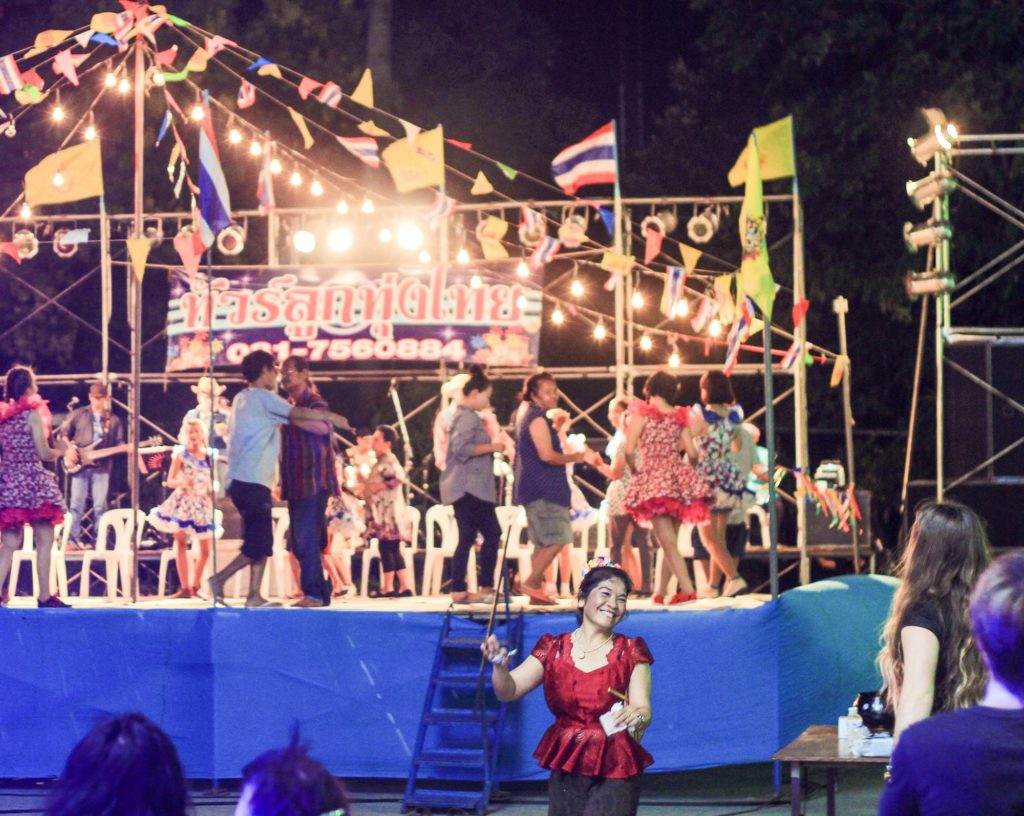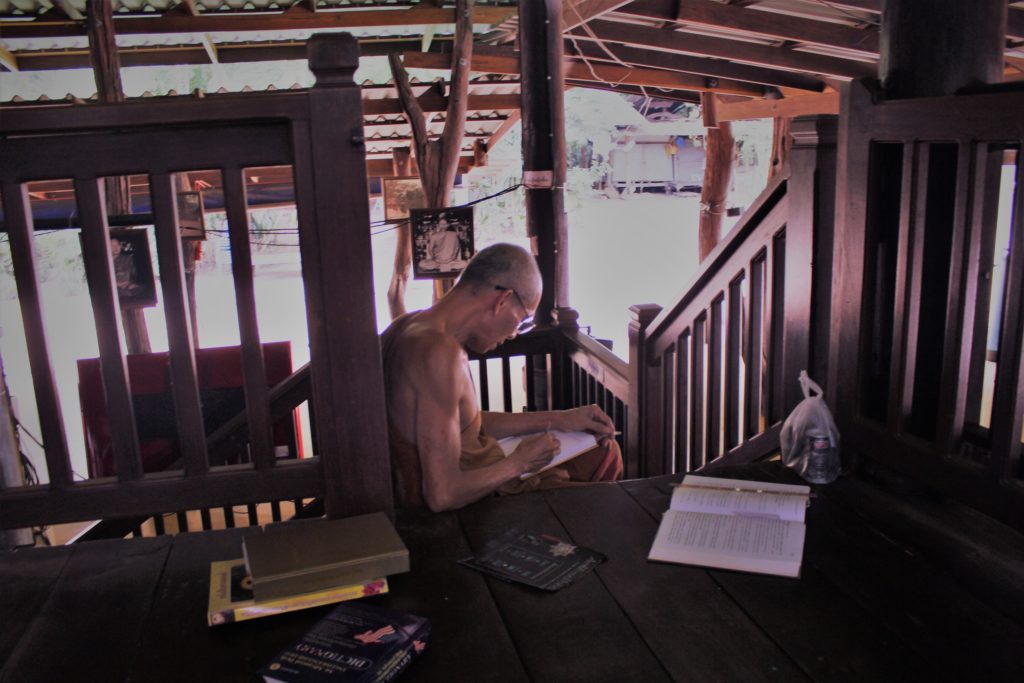 An elder dances during a Songkran celebration, Salaya.
An elder dances during a Songkran celebration, Salaya.
Respect for elders is a much greater part of culture in Thailand than in many Western societies, with special manners used to interact with them. Thai people usually greet strangers with a wai, and even friends, but not always. When greeting an elder, however, the wai is always used to show respect. The younger person initiates the wai, with the elder returning a less dramatic wai. In addition, the younger person will bow their head to make themselves shorter and lower to the ground when walking by their elder to make themselves humble. This is seen especially between students and teachers, with students always acknowledging their ‘ajarn’ as soon as they enter the room, walking very low to the ground when in the classroom to respect their teacher.
During Songkran festival (pictured above), younger generations of children pour water over the hands of their elders to ask for forgiveness for any wrongdoings that they have committed during the past year. There are many temple festivities with food and dancing.
 An elderly monk studies, Udon Thani.
An elderly monk studies, Udon Thani.
Thai people never sit above or stand over their elders, and always speak with elders in a quiet manner and with formal language. Familiar elders are addressed as ‘pii’- meaning older sister/brother. ‘Khun’ (Mr./Mrs.) is used in more formal situations, and friends’ mothers and fathers can be addressed as ‘mae’ (mother) and ‘paw’ (father). The elder is treated as a guest, and always hospitably offered food and drink before anyone else. The consensus of elders is always given priority over everyone else’s.
Birthdays of babies and young children are usually not celebrated because they are not seen as significant, but the birthdays of elders are heavily celebrated with lots of food and drink. If children are leaving their home, to show their elders respect they may sometimes bow to the feet of their parents, representing that they are not worthy of the great love that they have been shown.

